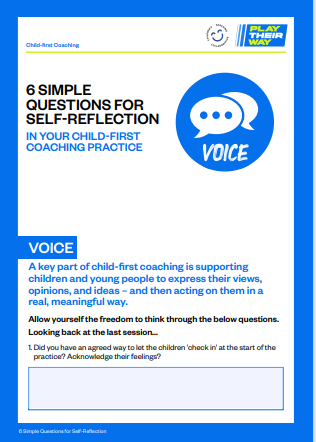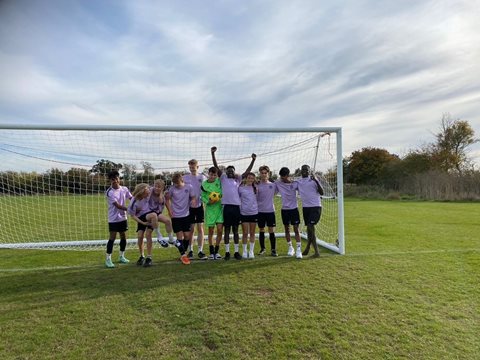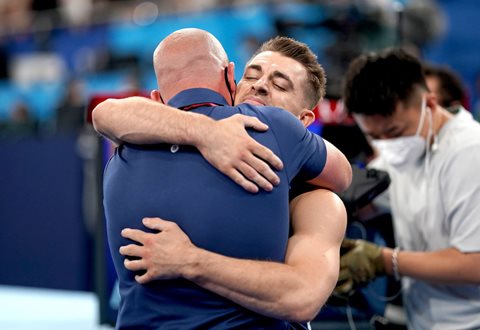Our cookies
We use essential cookies to make our website work smoothly for you. To make sure we're always improving, we'd like to use analytics to track how people use the site. We won't set non-essential cookies unless you give us permission. You can find more information about all the cookies we use in our Privacy and Cookie Policy.
Some cookies are a must for our website to function properly. If you turn off essential cookies, it may affect how you experience our site.
The non-essential cookies we use help us understand how you use our website and make improvements to enhance your experience.
Kick Off The Fun: Engaging Football Game Ideas for Kids
Martin Dighton, Senior Coach Developer at UK Coaching and Peter Sturgess, FA National Development Coach share their ideas on engaging football games and child-first coaching.
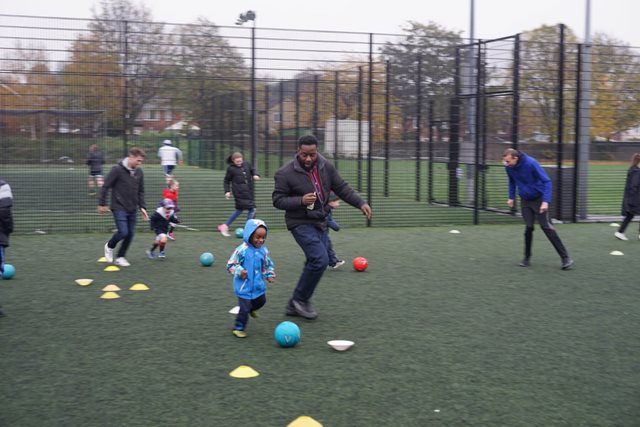
It shouldn’t be hard to get kids to play football. Running, kicking, chasing, playing together – these things come naturally to even the youngest toddlers. So while football at the top level might be a serious business, for kids joining their friends for football sessions after school or on a weekend morning, it’s all about having fun.
As a football coach, of course, the last thing you want to do is coach that sense of fun out of them. You want the kids to want to play football. And yet recent research indicates that this can be an uphill struggle: around 55 percent of children aren’t doing enough physical exercise – and only 45 percent of children who do take part in sport and physical activity say they really enjoy it.
So how do we turn this around? How do we as coaches make sure that football is fun? Engaging football coaching games are a key part of the strategy – but what makes a coaching game enjoyable as well as useful? The latest thinking suggests that fun football games for kids’ coaching aren’t just something a coach sketches out on a whiteboard – to really engage kids in football, they need to have a say, and they need to be heard.
How do you coach kids’ football in a child-centric way?
Child-first coaching is actually embracing the fact that they are young children with lots of creative ideas, with lots of energy, and trying to harness that within the hour’s session that you spend with the children,” says Pete Sturgess.
Peter Sturgess FA National Development Coach
“So it’s giving them a real voice, and a say in what activities are done and for how long. The changes can come from the children.”
Peter is the National Foundation Lead for the Football Association, and a keen advocate of a child-led approach to football coaching. It’s a policy that the FA has been pushing for since the early 2000s: a way of getting kids into football by emphasising their right to be heard, their right to play, and their right to develop – and do that in their own way, without coercive coach-down sessions and endless do-this, do-that drills. This way, engaging football coaching games are a team effort.
Empower children to develop their own football game ideas
Martin Dighton, Senior Coach Developer at UK Coaching, talks me through how this might work in practice. "Let's say I’m working with a group of children and I've suggested we're going to play in an area that's, say, a circle. I might throw the question to the group. What could this circle be? And the answer might come back, well, what if it was a pirate ship? Hmm. Okay. Right. So it’s a pirate ship. Well, in that case, what's the deal with the pirate ship? Well, we're all pirates. So we’re letting the children build the game.”
“All I've given them is a really loose structure at the start an area, and I'm now trying to run with their imagination. So imagine playing a pirates game with a bunch of seven-year-olds: you’d have sharks, you'd have treasure. So you might have yellow cones on islands: that’s treasure, that the children have got to dribble their ball towards, steal some treasure and get it home without being eaten by a shark along the way.”
“As the adult, my job is to let that imagination run wild and not really put a block on any of it. Maybe I can just nudge, ask questions, go ‘Well, we need to add a defender – what could the defender be?’ And letting them go with it – and just being really okay to go with where the kids want to go.”
If that sounds like letting the monkeys take over the zoo, don’t panic!
“We have to make it really clear that the coach is not redundant with this approach,” Pete Sturgess says. “The coach is actually more important now because they start the process of learning off. So there’s nothing wrong, even if it's called ‘child-centred’ coaching, with me coming up with an idea or a game and saying to the kids, I think you’re going to enjoy this.
I'll then say to the players, where could we take this? How could we make it easier? How could we make it harder? How could we involve more and more people or include more running in this game? And then again, the ideas would come from the children.”
“So I think it’s about the coach being willing to take the crown off themselves and place it on the head of the children. But also the coach has to be highly skilled at asking the right kind of question to either develop understanding or to extend the learning, and to take it in those different directions that the kids want to take it in.”
How to empower kids to create their own football games
Don't drop the ball! Download our free tools, tips and games and grow your coaching practice.
FREE TIPS
Child-centric football game ideas in practice
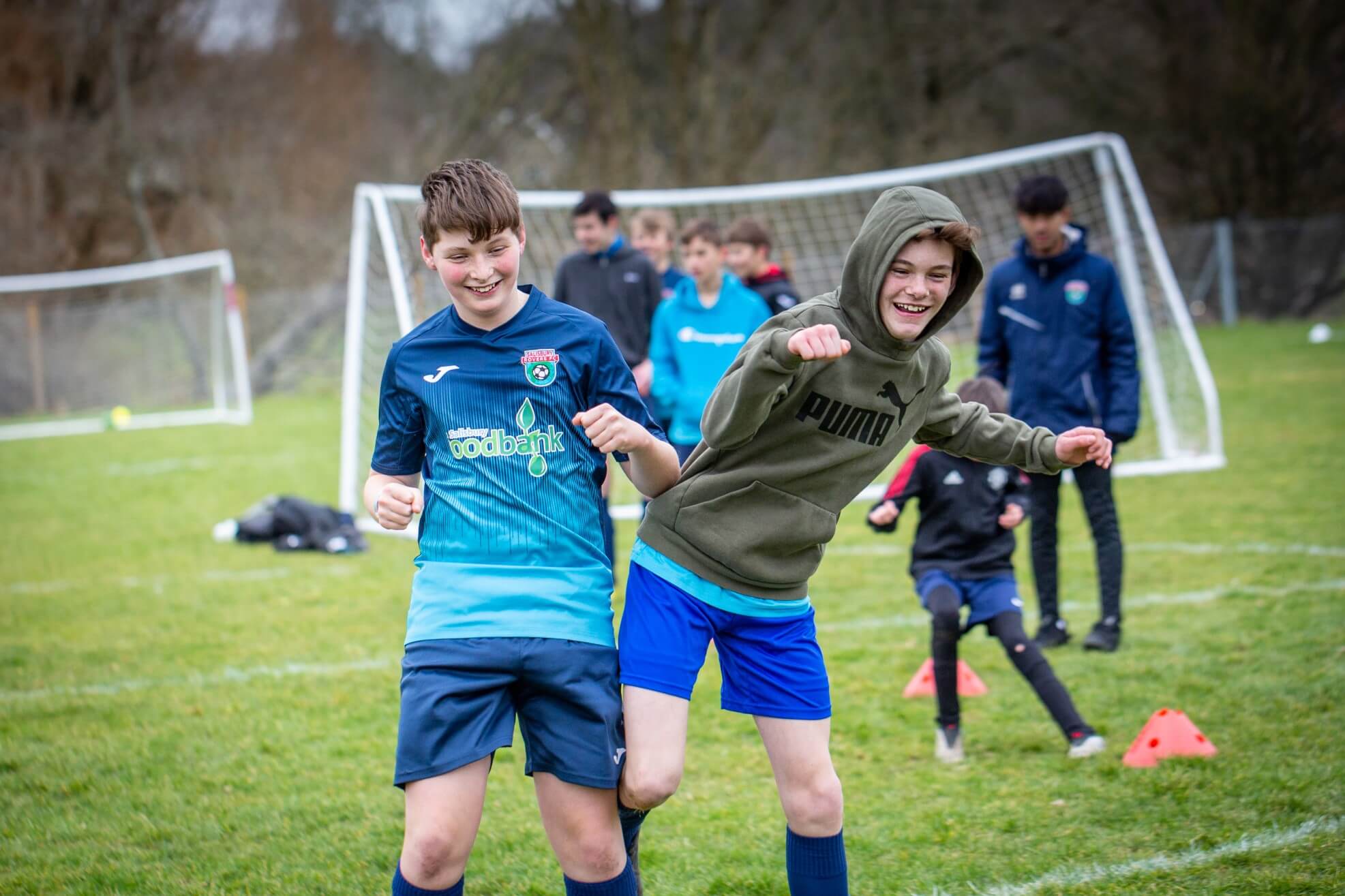
One club that has embraced child-led coaching in its kids’ coaching setup is Wiltshire-based Salisbury Rovers . The club embraces the CCC’s football coaching philosophy and speaks proudly on its website of putting ‘the joy of football at the heart of everything it does’.
“Joy and competition are not mutually exclusive,” reads the Salisbury mission statement. “Kids are competitive the moment you give them a ball. But kids need to play for themselves, not for adults.”
How might this translate into developing fun football games for kids’ coaching? Again, the emphasis is on building football coaching games in partnership with the children.
Coaching is a dialogue,” runs the club’s coaching guide. “Ask for ideas, listen and act. What would children like to do in sessions, individually and collectively?”
Salisbury Rovers FC Child-first advocates
Flexibility is important: what works for one young player might not work for another. Positive praise is encouraged; coaches are encouraged to observe without intervening (although of course children should be heard if they are asking for help). Open questions – what do you think, what should we do, how could this be more fun? – are better than directive statements.
Older children will be able to tell you what their football coaching games are about, how they work, and why they enjoy them. Engaging football coaching games need to take account of what the kids are capable of, cognitively and physically. Remember, social and psychological goals are as important at this stage as technical outcomes: in-game challenges like playing outnumbered, or speaking in a group, can help build the kids’ resilience and confidence. “Children,” runs a Salisbury mantra, “are more than a pair of feet!”
The best football games for kids
No-one can tell you exactly how to devise and run engaging football coaching games: each coach and each group of kids is different. But there are some key principles and techniques that you can bear in mind when you’re coaching to help your football coaching games take shape. Here are a few more football coaching tips from the Salisbury Rovers playbook.
- Prioritise children as individuals – kids don’t need coaching in ‘teams’ until they’re 12+
- Whenever possible, use game-based opposition play: 2 v 2, 2 v 1, 3 v 3, whatever
- Tag and chase games are great!
- Avoid passing practice! Kids will want to keep the ball, and that’s fine
- Try to empower the players to take ownership of their coaching games
- Give them plenty of ball time – it should look and feel chaotic
“This approach is not laissez fair,” stresses Pete Sturgess. “It’s not like we just have a cup of coffee and the kids get on with it and the magic happens. For me, it actually requires more skills, because it calls on your preparation and your willingness to know when to release power to the kids. And knowing how to do that effectively, I think it requires a really high level of skill.”
It seems clear that the most engaging football coaching games are those that are about play above all.
“A child's life is about play,” says Martin Dighton. “It’s the right of the child to be able to play. And by play we mean play freely, without any fear or any consequences. Children don't play with train sets and dolls’ houses and have an adult behind them shouting at them what to do. For some reason in sport that's deemed acceptable.”
“We’re told sport is win at all costs, sport is about finding the next elite level, sport is a struggle that you have to survive,” he adds. “No. Sport should be something that kids love to do because it's an environment where they love to be.”
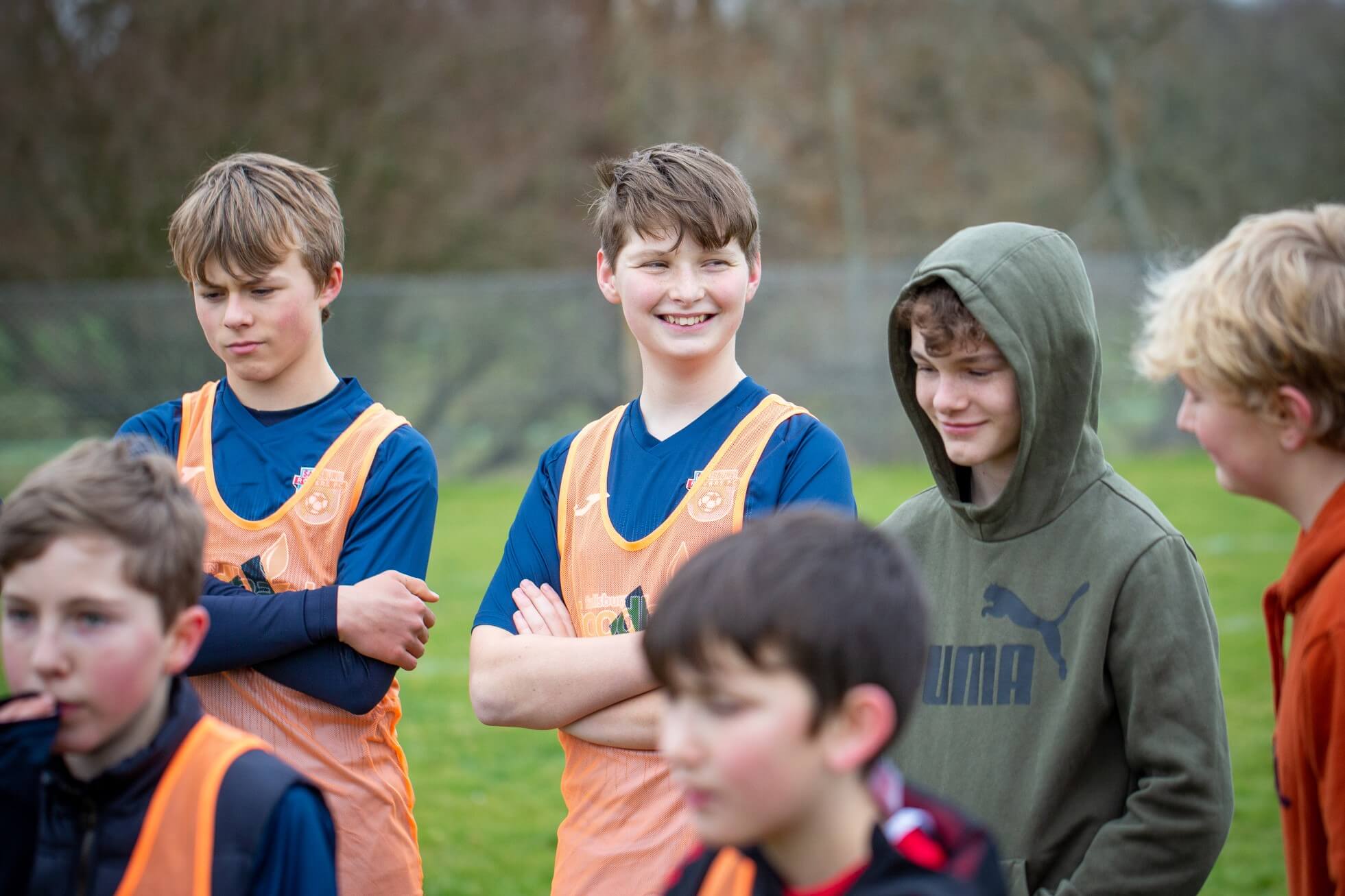
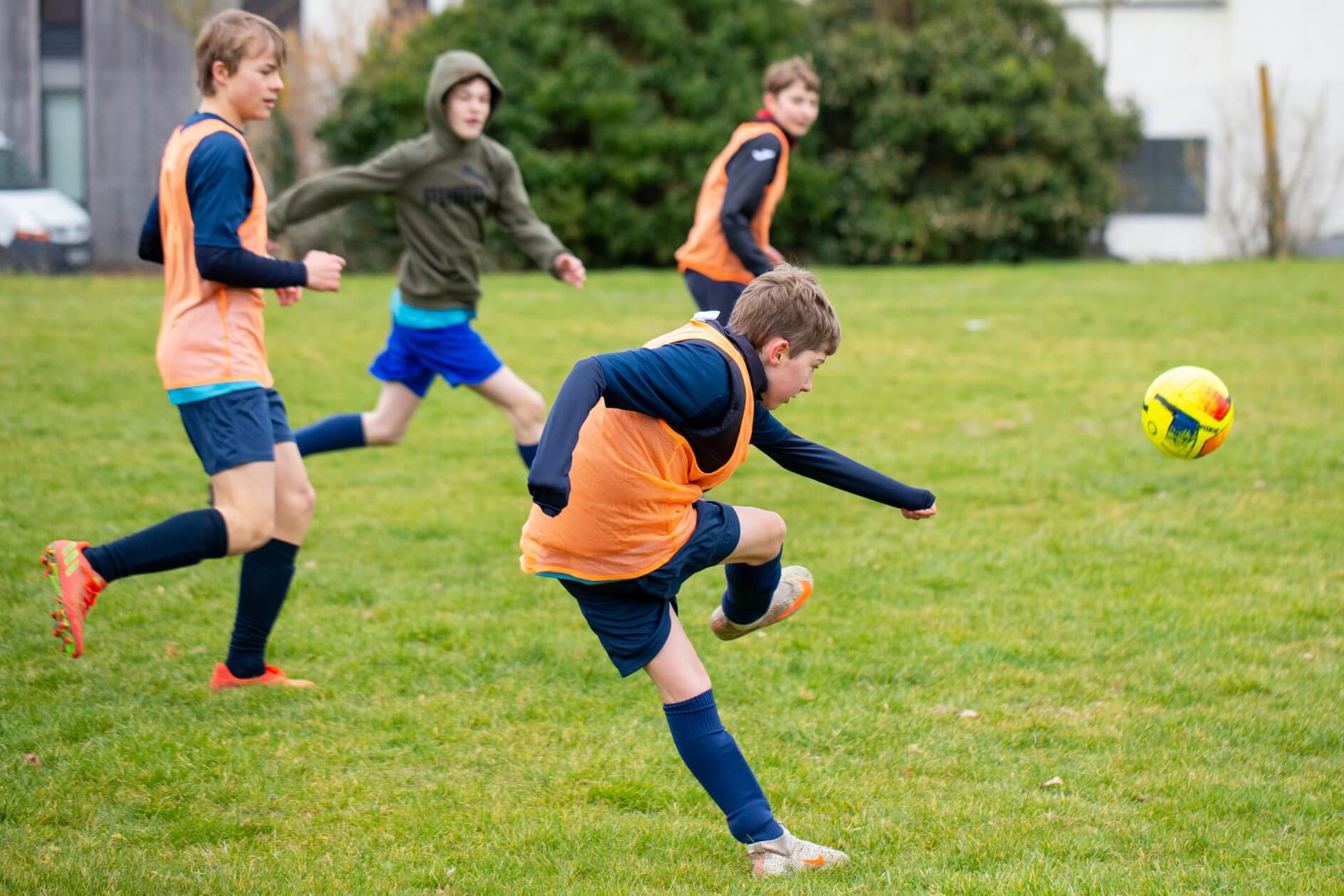
In our role as a coach or as an adult guiding a child into and through a sport, the number one priority has to be to help them to fall in love with it so that they keep coming back. We can't help them get better at anything if they don’t come back next week.”
Martin Dighton UK Coaching Senior Coach Developer
Join Laura-Jane Jones in this captivating episode of the Play Their Way Podcast as Nick Levett – a grassroots football coach with over 25 years of experience with roles such as 'National Manager for Youth Football' at the FA, Head of Coaching at UK Coaching – delves into co-creating with children, involving parents, and the magic of rolling out engaging games.
Other resources that you may like...
About the contributors
Martin Dighton has been coaching for around 20 years, many of which have been full-time working with children on a daily basis. In his current role as a Senior Coach Developer at UK Coaching Martin works with NGBs, tutors and coach developers to help them to carry the message of child-first coaching to coaches across the UK.
Pete Sturgess has committed his whole career to improving the coaching of our youngest players. A former teacher and academy assistant director, he has been the FA’s National Foundation Lead for the last 14 years and during his 17 years at the FA was also the Head Coach of the England Futsal squad for 8 years, leading them successfully into FIFA and UEFA competitions.
SHARE THE MOVEMENT
Help spread the word by sharing this website with fellow coaches!

